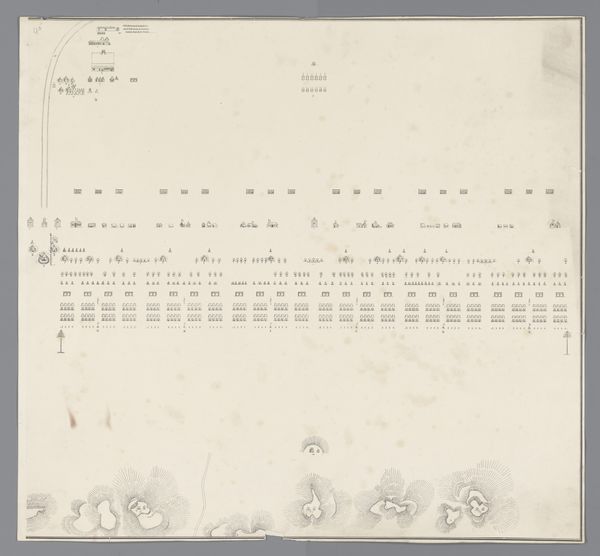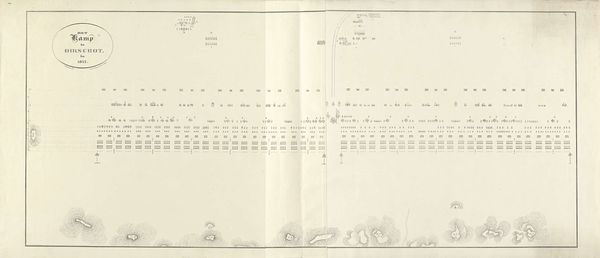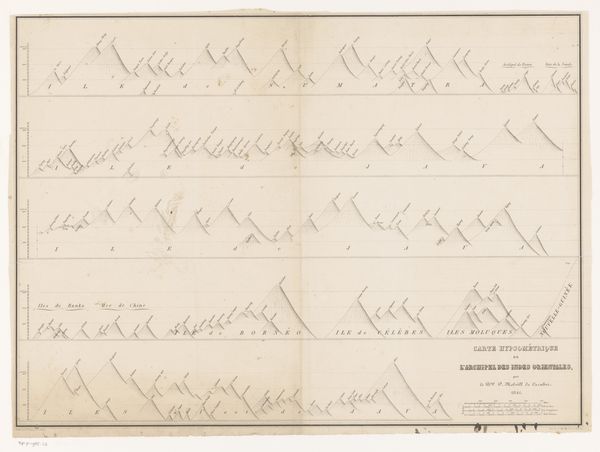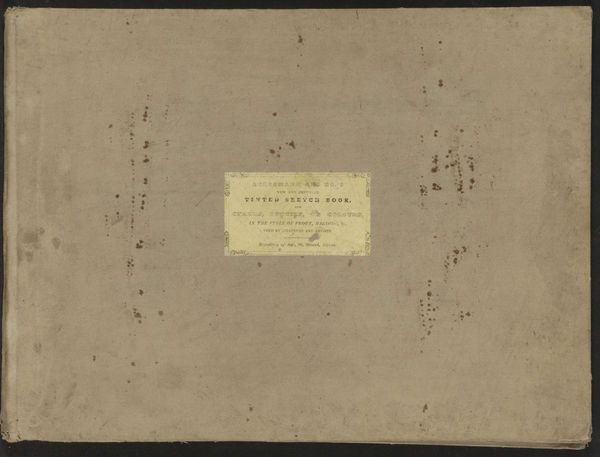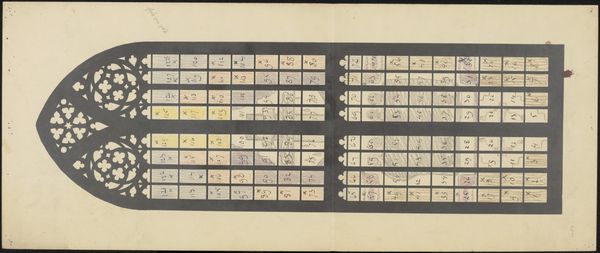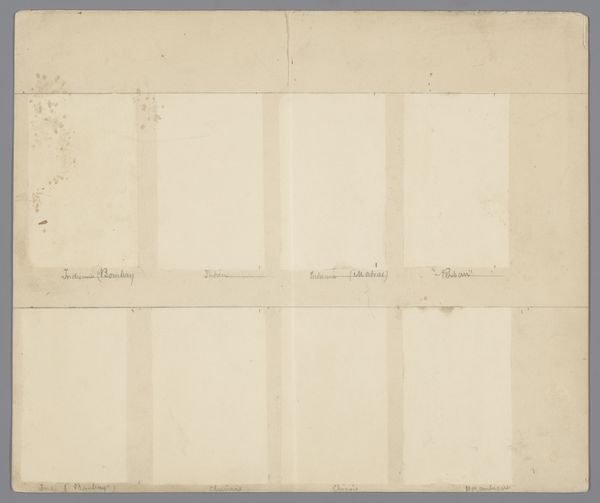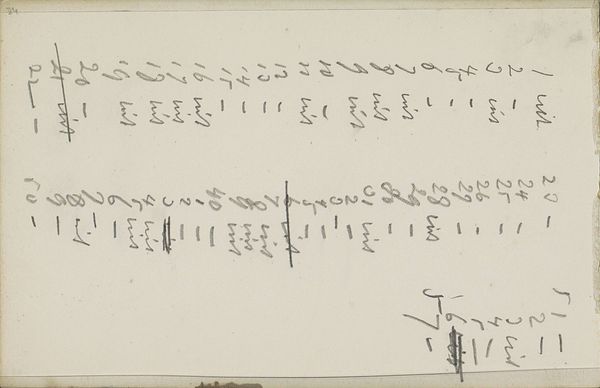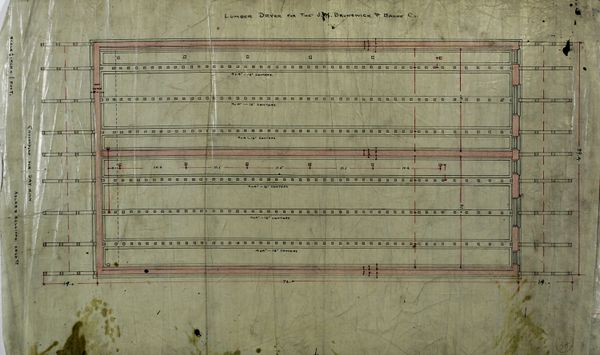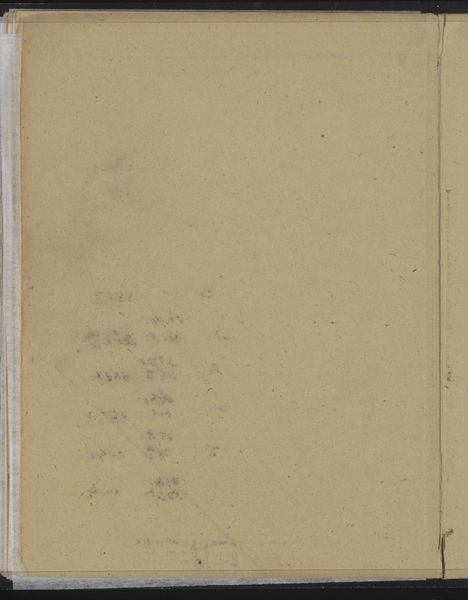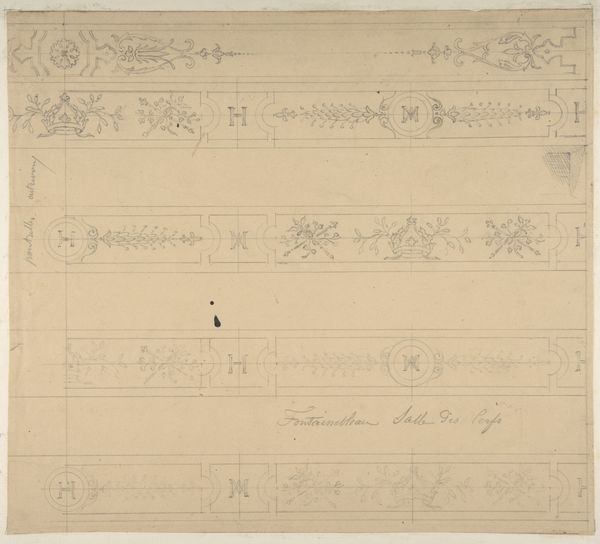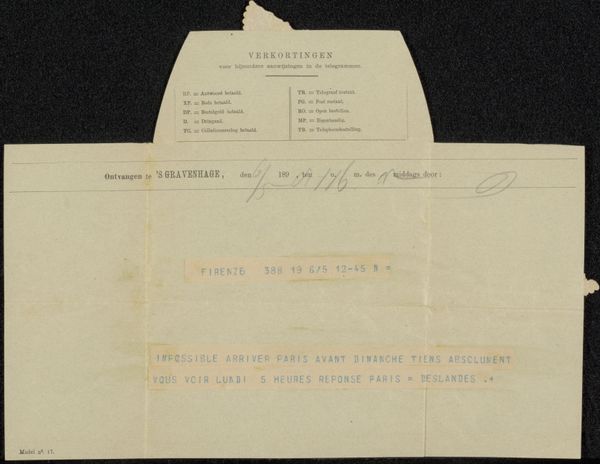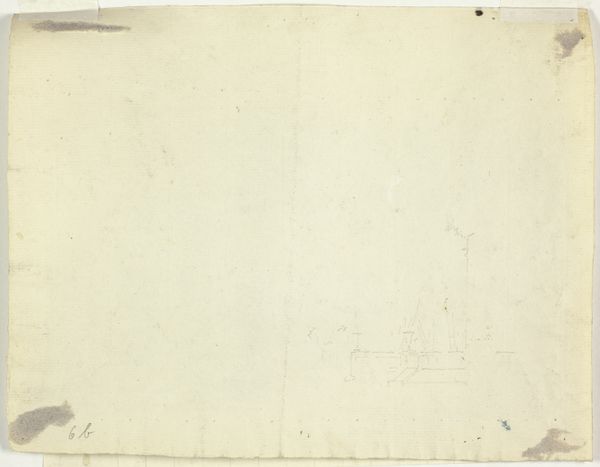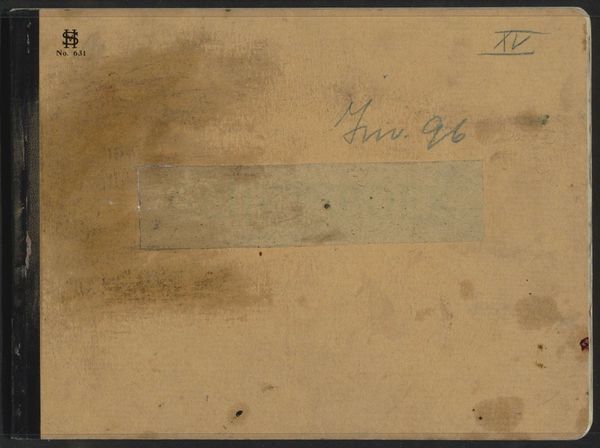
drawing, print
#
drawing
#
aged paper
#
homemade paper
#
pale palette
#
reduced colour palette
#
pale colours
# print
#
light coloured
#
white palette
#
feminine colour palette
#
personal sketchbook
#
geometric
#
history-painting
#
academic-art
#
soft colour palette
Dimensions: height 456 mm, width 530 mm
Copyright: Rijks Museum: Open Domain
Curator: Right, so here we have "Het Kamp te Oirschot in 1832," a drawing, likely a print, by G.M. Heaton. I’m struck by the almost map-like quality, and the restrained use of color. It gives it a stark, functional feel. What catches your eye? Editor: The material itself is interesting. The homemade paper, the pale color palette… It’s clearly a practical drawing, perhaps for military use. How does the production method affect our understanding of the piece? Curator: Exactly! Think about the process. This wasn't meant for a gallery; it was a functional document, created with readily available materials. The labor involved in creating both the paper and the print underscores its utilitarian purpose. Does the academic style, so rigidly geometric, reinforce that utility or perhaps try to elevate its status? Editor: I see your point. The artistic style does seem almost at odds with the presumed functionality. It suggests a degree of refinement, almost a performance of authority. Was there an attempt to legitimize the information being presented? Curator: Precisely! And how does that relate to the larger societal context? Consider the role of cartography and visual representation in military power at that time. The “reduced colour palette,” “aged paper,” and “geometric” elements all contributed to its perception as an authoritative, objective document, which would further enhance the represented power relations. Editor: It's fascinating how the seemingly mundane materials and the stylistic choices were integral to shaping perceptions of power and authority. So, looking beyond just the aesthetic, focusing on the making of the artwork itself helps unlock so much more. Curator: Precisely, and it highlights how intertwined art, labour and society really are. By looking at these elements, it opens new angles. It really makes one reconsider.
Comments
No comments
Be the first to comment and join the conversation on the ultimate creative platform.
